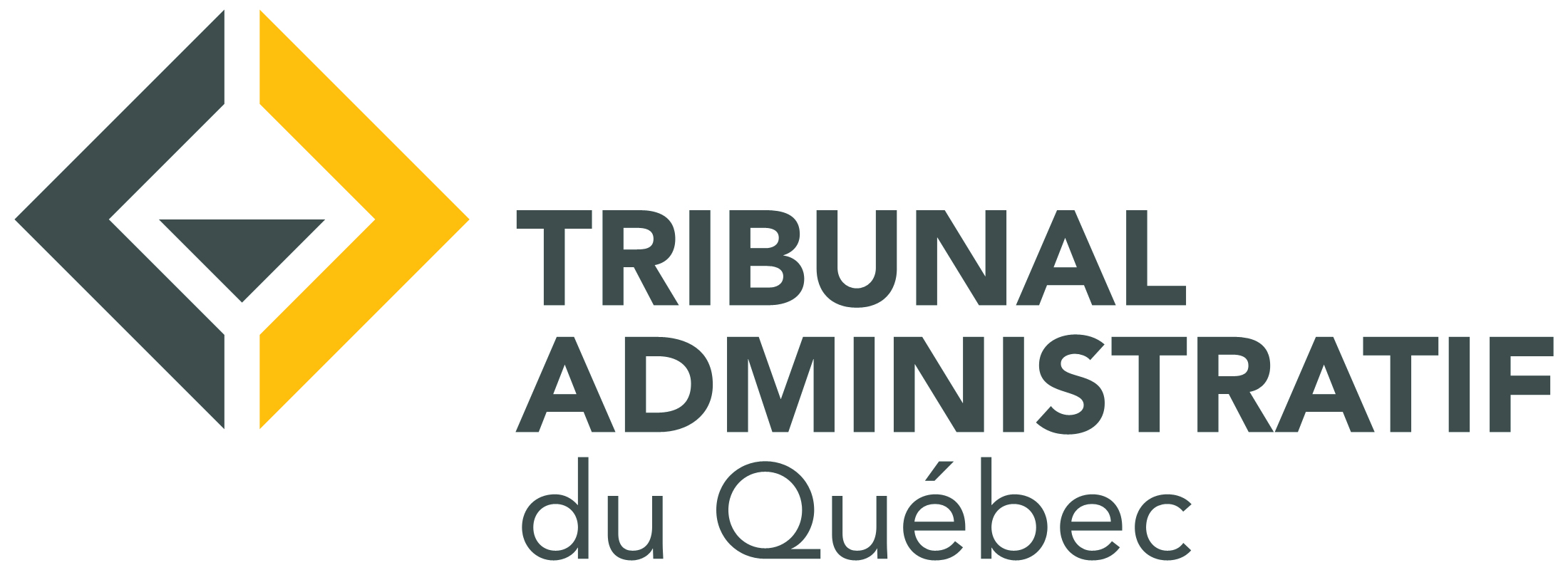A Tribunal to serve you!
We support you throughout the steps of your proceeding before the Tribunal administratif du Québec, as soon as your file is opened.
Quick Access
Conduct of a proceeding at the Tribunal
Here are the steps that generally take place in the proceeding process. These steps may vary depending on the nature of your request or the section or division of the Tribunal that will examine it.
These steps are not the same for appeals concerning the Mental Health Division and for real estate cases.
You are unsatisfied with a decision rendered by a public organization
You have to address the Tribunal administratif du Québec if you wish to contest a decision undered concerning you by a department, an agency (boards, commissions, hospitals, etc.) or a municipality. .
File a proceeding
If a decision referring to you was rendered by a municipality, or a government department or body and you think that it should be different, you can challenge this decision by filing a motion before the Tribunal. It is called "filing a proceeding".
Receipt of your application
When the Tribunal receives your application, it sends you a confirming letter.The Tribunal then informs the department, agency or municipality, whose decision you are contesting, of your application.
Preparation for conciliation and the hearing
It is important that your file be ready for the hearing. The effort you devote to your preparation may have a direct impact on the outcome of the Tribunal's decision on your application.
Preliminary applications
Before and at the beginning of the hearing, it is possible to make specific applications to the Tribunal. They are called "preliminary applications".
Conciliation
The Tribunal may invite you to participate in a conciliation session before the hearing. This session is not compulsory, except for certain types of proceedings; for example, in the area of income security.
Hearing
Generally, the last stage of your proceeding is the hearing. You will be informed of the date and location of the hearing by the Tribunal. Hearings are usually conducted before two administrative judges: a lawyer or notary, and one specialist in the area involved in your application (a doctor, certified appraiser, etc.). Be aware that if you have participated in a conciliation session, the administrative judge who acted as a conciliator cannot be the judge at the hearing.
Tribunal's decision
After the hearing, the Tribunal has three months to render its written decision. You should be aware that certain circumstances allow you to contest the decision even if it is usually final.
You are unsatisfied with a decision rendered by a public organization
The Tribunal administratif du Québec is the place to go if you want to contest a decision made about you by a ministry, public body (boards, commissions, hospitals, etc.) or municipality.
The hearing
An overview
File a proceeding
You can file your proceeding onlineThis hyperlink will open in a new window, except for matters regarding expropriation or the Review Board for mental disorder. The form is easy to use. It gives you useful tips and informs you on what information to give the Tribunal.
You can use the Tribunal's paper form, called a "Motion instituting proceedings". This form has useful tips and informs you on what information to give to the Tribunal. It can be completed on your screen and then printed.
File a proceeding
To make the process easier for you
Preparation for conciliation and the hearing
Audience
Generally, two administrative judges will be present at the hearing. One is a lawyer or notary and the other a doctor, social worker, psychologist, certified appraiser or another, according to the case.
The Tribunal Administratif
What we can do for you
Important to know
Documents
Receipt of your application
Preparation
Conduct of a hearing
Preliminary applications
Before and at the beginning of the hearing, it is possible to make specific applications to the Tribunal. They are called "preliminary applications". In theory, this type of application must be sent in writing to the Tribunal.
Preliminary applications
Conduct of a hearing
Conciliation
Conciliation is a simple and efficient way to settle your proceeding without having to go through a hearing. It allows you to discuss and negotiate directly with the representative of a department, agency or municipality and reach an agreement.
Conciliation encourages dialog. It takes place in private, in the presence of an administrative judge who acts as a conciliator. Everything that is said or written down during the conciliation is confidential.
Prepare for a hearing
Conduct of a hearing
Hearing
You will receive a letter indicating the date, time and location of your hearing. You must be present. The Tribunal can render a decision in your absence.
Prepare for a hearing
Conduct of a hearing
Tribunal's decision
The Tribunal usually has 3 months to render a written and motivated decision. A copy of this decision will be sent to you by mail.
The Tribunal's decisions can also be consulted free of charge on the website of the Société québécoise d'information juridiqueThis hyperlink will open in a new window.
Prepare for a hearing
Conduct of a hearing
Social Affairs
Mental Health Division
Real Estate
Territory and Environment Section
Economic Affairs


